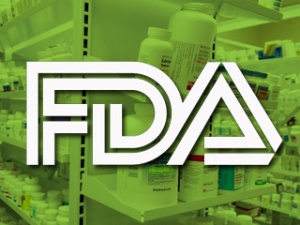July 1st, 2011 by Peggy Polaneczky, M.D. in Health Policy, Opinion
No Comments »

 The Supreme Court has sided with Big Pharma in their challenge to the Vermont Law limiting the pharmaceutical Industry’s access to physician prescribing information.
The Supreme Court has sided with Big Pharma in their challenge to the Vermont Law limiting the pharmaceutical Industry’s access to physician prescribing information.
The nation’s high court handed down a verdict Thursday in the Sorrell v. IMS Health case, striking down by a 6-3 vote a 2007 Vermont law that that bans the practice of data mining — the sale and use of prescriber-identifiable information for marketing or promoting a drug, including drug detailing — unless a physician specifically gives his or her permission to use the information.
Apparently, Big Pharma’s right to “free speech” trumps my right to privacy. How getting access to my prescribing information has anything to do with free speech is beyond me. In the twisted logic of the pro-business, anti-citizen Supreme Court –
Speech in aid of pharmaceutical marketing… is a form of expression protected by the Free Speech Clause of the First Amendment. Read more »
*This blog post was originally published at The Blog That Ate Manhattan*
November 6th, 2008 by Dr. Val Jones in Opinion
3 Comments »
Wyeth vs. Levine is an important legal case being tried before the US Supreme Court. You may have read about the lawsuit in the New York Times, NEJM, JAMA, the Wall Street Journal, or my own blog. It revolves around the tragic story of a woman (Ms. Levine) who experienced an extremely rare side effect (severe tissue damage resulting in the amputation of her right arm) because a drug was administered improperly (into an artery rather than a vein). Ms. Levine is arguing that her injury could have been avoided if the drug label had stronger warning language, and the Vermont Supreme Court ruled in her favor, awarding her $7 million. The court ruled that a jury in the state of Vermont had the right to hold Wyeth accountable for a different labeling standard than the one approved by the FDA.
The plot thickens, however, in that Wyeth’s FDA-approved label very clearly discourages injection of their drug into or near an artery, and it also describes the potential consequence (including gangrene) of such an action. The FDA approved Wyeth’s label in full knowledge of the potential risks and benefits of the drug. In fact, Wyeth asked to strengthen the language of the label before Ms. Levine was injured, and the FDA declined to make the change because label changes are based on new information about a drug’s frequency or severity of risks. Wyeth had nothing new to disclose. Read more »
 The Supreme Court has sided with Big Pharma in their challenge to the Vermont Law limiting the pharmaceutical Industry’s access to physician prescribing information.
The Supreme Court has sided with Big Pharma in their challenge to the Vermont Law limiting the pharmaceutical Industry’s access to physician prescribing information.











